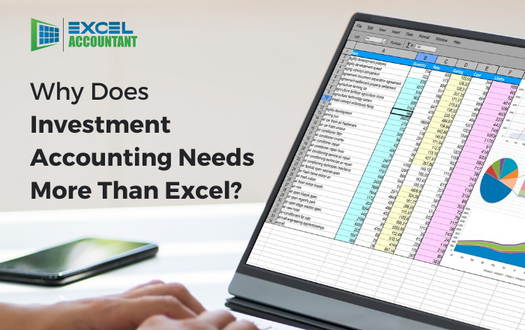
Excel is widely used by accountants daily. But that does not mean it is perfect! We have a whole another blog explaining pros and cons of Excel.
Excel is used to store and analyze large sums of data. Its flexibility, agility and usability have made it popular. But the bottom-line is, Excel isn’t a specialized accounting program! There are some nagging issues when it comes to using Excel for accounting purposes:
Despite being the go-to tool for spreadsheets, it leaves a lot to be desired. Using it for complex accounting requires manual entry from many files and too many workarounds. Even though it offers pivot tables and cross-tab functions that aid organizing and processing data, it doesn’t help much if a number comes up wrong. It becomes cumbersome to track the wrong number and its underlying information.
To put it succinctly, a spreadsheet is a list. It depends totally on manual input. As is the case with all things manual, it is prone to errors. Worse still, there aren’t efficient tools to locate the mistake. When/ if there is an issue, you will have to look for the right line in the right tab in the right spreadsheet. This will consume too much of your essential time. Additionally, it does not offer robust security controls or multi-level user verifications to ensure a secure interface.
A specialized software is the need of the hour for accounting work. Such a software is designed to work with databases and organize information to help you process and manage data efficiently. These accounting software utilize the processing power of your computer and perform complex calculations and data manipulation with stunning accuracy and agility. They also accommodate direct feeds from numerous third-party systems to allow automated download of information, thereby, eliminating manual entry and vastly ameliorating the accuracy. What is more, they provide reporting and security options that Excel cannot compete with.
A database driven accounting solution offers the following 3 advantages vis-a-vis accounting on MS Excel:
Better records
Locating, storing, documenting and reporting information should be as swift as possible to respond efficiently to client requests as well as meet complex regulations and tax requirements. That is imperative for effective accounting. Working on Excel requires you to sift through several tabs and files to find the information you want. With specialized accounting software driven by a database, you can do it effortlessly.
Faster answers
Undoubtedly, you know the importance of a quick response to a client’s query. With MS Excel, you may find yourself in a spot if you need to run a new report, locate the data in an existing report or sort the data differently. Here, a database software beats Excel hands down as it comes equipped with the tools to segregate the details and answer the query with all the facts and figures without breaking a sweat. This turnaround time will surely leave your clients awestruck and put you on a higher pedestal when it comes to customer satisfaction.
Leverage compatibility with other technologies
Like every accounting firm, you too would be aware of the importance of easy export of data to software such as a general ledger, CRM, OMS or cash management system. This is vital to keep everyone involved on the same page. A database driven software works lucidly- it allows information to flow in as well as out using whatever form works best.
Relying on Excel makes you work harder by executing unnecessary tasks that can be easily taken care of with efficient accounting software. Technology you employ for accounting should be compatible with existing processes to streamline work.